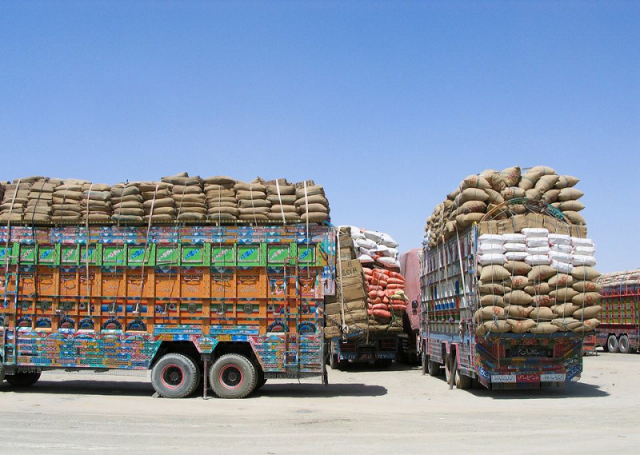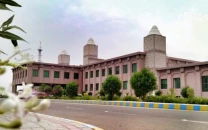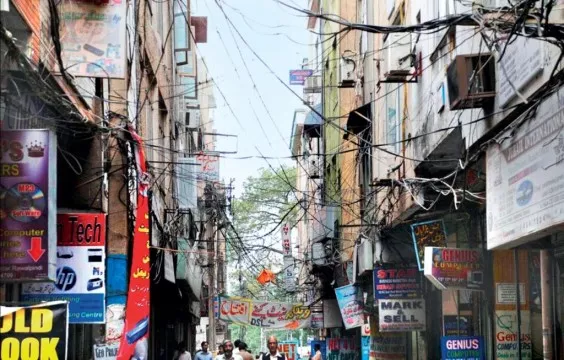Exporters uncertain on trading with Afghanistan
Halting trade can exacerbate the existing humanitarian crisis for the nascent regime in Kabul

As Afghanistan’s new administration looks to overcome economic instability by normalizing trade relations with its neighbors, questions are being asked regarding the legality of this.
Amidst the financial hardships for the country, all eyes are on Pakistan as it is still trading with its Afghan neighbor whereas the rest of the world is yet to recognize the new government.
A Peshawar based exporter, who regularly deals with Afghanistan, told the Express Tribune that the little trade happening between the two countries was legal. “We are trading with Afghanistan under the Afghanistan-Pakistan Transit Trade Agreement 2010, an agreement which cannot be affected unilaterally and it requires both the country’s consent to end the agreement,” he said.
However, another trader requesting anonymity due to security concerns, while talking to the Express Tribune, inquired, “our agreements were with the previously politically elected and recognized government. Now when they do not have a globally accepted setup in Afghanistan, who do you deal with?”
Citing recognition as the most important factor while dealing with the global community, the trader said that since the Taliban government had not been recognized by the world, the trade currently going on between Pakistan and Afghanistan was illegal.
Currently, Pakistan exports chicken, cement, fresh and vegetables, meat, maize, and other daily commodities to its neighbor.The trade between the two is estimated to be between 2 to 4 billion dollars and some traders state that if the current Taliban setup was legitimized by the globe it could grow to around 10 billion dollars per year.
READ Traders ask govt to control inflation
“There is a clear policy of the State Bank of Pakistan that importers will have to pay in dollars but since Afghanistan’s dollar accounts are frozen how can we term this trade as legitimate,” the trader questioned.
However, a senior Customs official, while talking to the Express Tribune said that all such trade illegality claims were nonsense. “Afghanistan has always been extended special treatment and we have traded with them in local currency before which was once questioned by the National Accountability Bureau (NAB),” he informed, “NAB was later informed that it was the ministry of commerce which decided terms and conditions for trade and the case was later dismissed.”
The customs official was of the view that even though Afghanistan’s accounts were frozen, there were no United Nations (UN) trade sanctions on the country so nothing was illegal.
“In August or September, I don’t remember the exact dates but Taliban stressed upon deals in local currency until their banking sector developed further and since there were no UN sanctions on them it was mutually agreed to trade in local currency,” the senior official informed.
Other experts weighing in on the matter believe that since Afghanistan is a landlocked country with only two border crossings mostly used for trade and it would lead to a human catastrophe if bilateral agreements, like Afghanistan-Pakistan Transit Trade Agreement, were withdrawn and the country was forced to trade in dollars.



















COMMENTS
Comments are moderated and generally will be posted if they are on-topic and not abusive.
For more information, please see our Comments FAQ